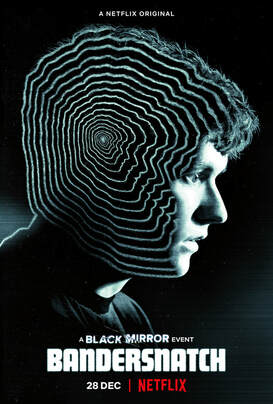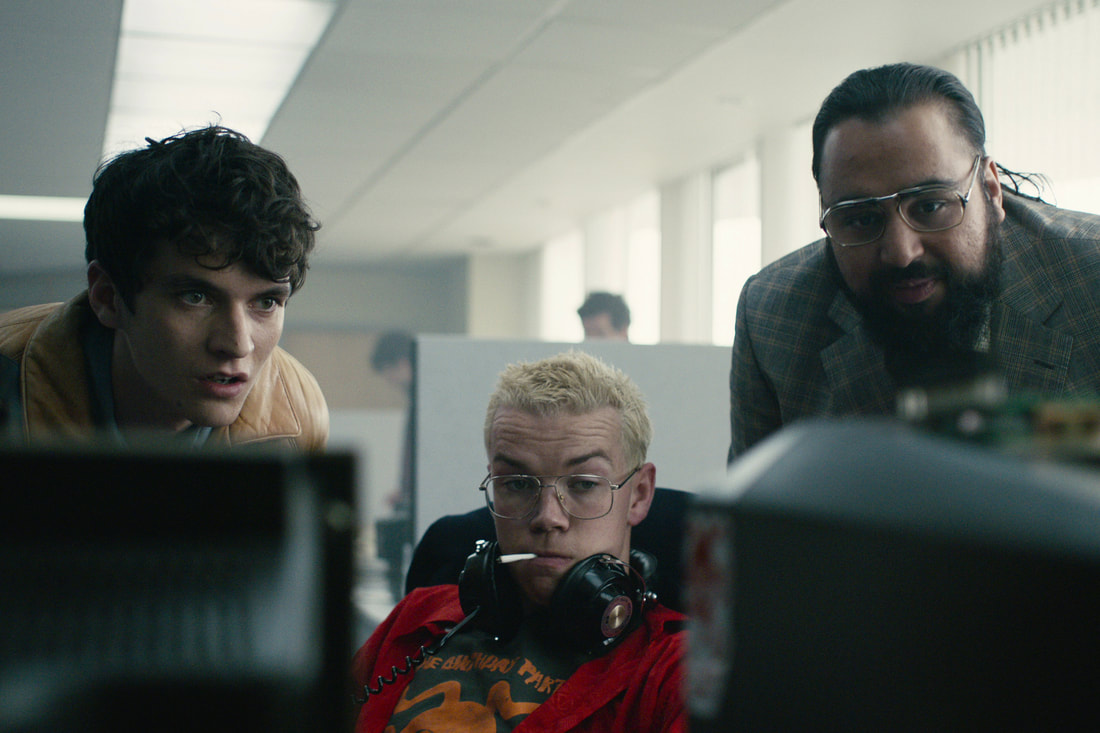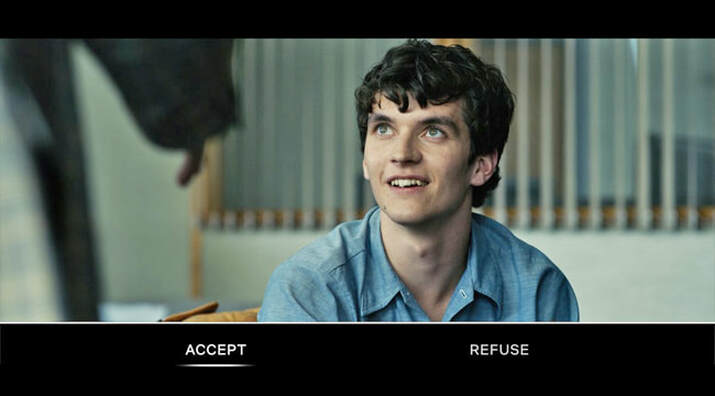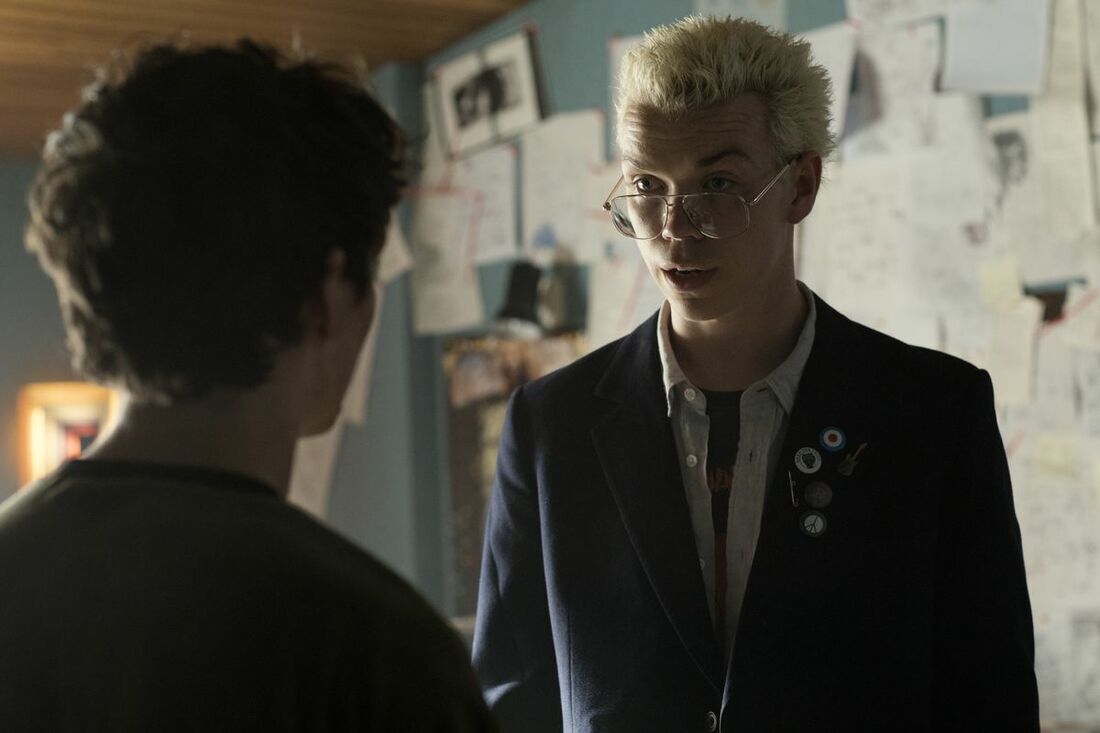| Black Mirror: Bandersnatch (2018) is an interactive film from the British science fiction series Black Mirror, and it is available exclusively on Netflix. The audience can now determine the character’s destiny through making various decisions for them. The plot is entirely customizable, meaning that there are multiple different endings to the film. Your experience will probably differ from someone else’s because your unique set of choices will lead to a specific outcome. Normally we would include a spoiler warning, but in this case there are many different endings that you may encounter, so reviews and opinions regarding this film are coming from specific experiences which you may not have yourself from viewing. In general, this is an entirely new way to consume content if you don’t consider it a video game, which it almost is. |
|
Let’s focus on analyzing this film in comparison to a video game, and what this different approach offers to the future of entertainment, and the film industry, in general. While Netflix has had this feature for some time, writer Charlie Brooker viewed it as an opportunity to make this season different. While initially seeming quite groundbreaking and revolutionary, this seems to be more of a proof of concept given that there are several dead ends in the script. It was disappointing to many viewers that their choice brought them back to the same point in the film, forcing them to make the “correct” choice which the filmmakers planned for. If this is true for every fork in the road that approaches, then what’s the point of involving the audience on this level at all? The actual premise of the film relates to the interactive concept, as the main character is a computer programmer from the 1980s who is coding a video game that allows you to do the same exact thing: make decisions for the character. He is inspired by a book titled "Bandersnatch" which also utilizes this concept. To what extent is this implemented? At first, just to get the viewer familiar with the interface, you are given the options between two different cereals which he can eat for breakfast, and then music tracks he can listen to on the bus. But after this, it comes down to more important decisions, such as a huge job offer for the main character, as seen in the image above. Choices like this are so significant that they have the potential to alter the entire plot. Why would you not choose the offer? Some viewers might just choose “refuse” to see the alternative, which ends up driving everything off of the script’s path. Sometimes, like mentioned before, you just end up going in a circle back to square one, which defeats the purpose of incorporating an external source. At one point, the character even acknowledges that there is something throwing him off of logical decisions, depending on what you choose. Netflix is even an option to communicate to him, which due to the time period, he doesn’t understand. Could this be the writers themselves recognizing that this feature has its limitations? Is this a game, or a film? To what extent should the audience intervene in a film in order to maintain its intended meaning? These questions are important to raise, because the acceptance of this feature may guide future films towards adapting it as well. Is this perhaps a way to draw towards Netflix as opposed to going to a theater? This is a much more personal experience, one that can not be replicated in a theater. Of course, as we all know, theaters offer certain immersive advantages that can not be achieved through a home entertainment system. However, this interactive element is something unique to a streaming service, and could not be a part of a theater due to the size of the audience. The decisions are meant to be made by a smaller group, or individuals. One can only imagine the complexity of the screenwriting process, considering the multiple paths that you can encounter in the plot. This also relates to the production since they had to film all of the different paths, which is probably the reasons why they opted for a single feature length episode this season instead of multiple. Besides just dwelling on the film’s flaws, let us admire its creativity and appreciate the addition effort that had to go into finessing multiple storylines into a single cohesive set of circumstances. Giving the audience more power is an interesting way to market a film. However, it is definitely refreshing to see more experimentation from a popular series which has very high expectations from viewers. It seems ironic for Black Mirror to be the first to implement this feature in this particular, because it already has a futuristic nature, and the pushes for innovation in the depicted stories. Only time will tell if this will actually catch on as a normal medium of films, or general entertainment as Netflix and home streaming becomes more popular. Written by: Dylan Delaney
Comments are closed.
|
Archives
April 2024
|







 RSS Feed
RSS Feed
